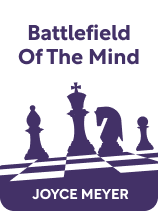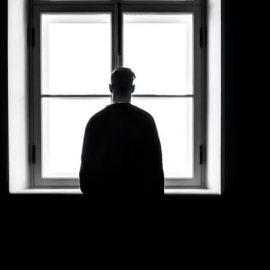

This article is an excerpt from the Shortform book guide to "Battlefield of the Mind" by Joyce Meyer. Shortform has the world's best summaries and analyses of books you should be reading.
Like this article? Sign up for a free trial here .
Do you take responsibility for your mistakes and problems? Or do you point the finger at someone else?
According to Joyce Meyer, Satan tries to keep you in a negative mindset by impeding your self-awareness. He does this by convincing you to blame other people or difficult circumstances for your flaws and bad decisions. When you accept responsibility, not only do you cultivate a positive mindset, you unleash God’s forgiveness.
Keep reading to learn more about why it’s important to stop blaming others for your problems.
Stop Blaming Others
“If” and “but” are two words that Satan plants in your mind so that you keep making excuses for your problems. Meyer writes that you should be wary of thoughts such as “I could be positive if … ” or “I would be positive but … .” Satan uses phrases like these to keep you from acknowledging your role in your problems and prevent you from developing the self-awareness needed for a positive life.
It can be painful to realize that you’re the reason for your problems, but Meyer writes that you’re free to change for the better once you stop blaming others for your problems. She explains that God is always ready to forgive you your sins, so long as you take full responsibility for them. But when you outsource blame, you also outsource agency in your life. Once you can ask for God’s forgiveness without accompanying excuses, you’ll be ready to internalize His unconditional love and assume full responsibility for a positive life.
| Blame as Avoidance While Meyer argues that blame stems from an attack by the devil, psychologist Bernard Golden argues that blame comes from our desire to avoid painful feelings such as shame and regret. Like Meyer, Golden explains that we often use “If…” statements to deflect responsibility for our reaction to a situation. For example, “If he hadn’t been so mean to me, I wouldn’t have yelled at him.” Golden notes that while statements like this can preserve our self-esteem in the moment, they ultimately interfere with self-awareness and self-worth. Golden explains that when we blame others, we rob ourselves of the chance to become more resilient, happier people. While blame may make us feel temporarily justified in our wrongness, it ultimately reinforces the idea that we’re not in control of our lives. If we accept that we’re victims of our circumstances, we’re unlikely to take the time to reflect on our choices. If blaming rather than reflecting becomes our default mentality, we can end up feeling powerless and anxious. Like Meyer, Golden suggests compassion as the antidote to blame. While Meyer urges readers to ask God’s forgiveness for bad choices, Golden proposes that we can live happier lives by simply accepting rather than judging ourselves. The takeaway message from both authors is that we can break the negative mindset that causes us to default to blame by coming to terms with our imperfections. |

———End of Preview———
Like what you just read? Read the rest of the world's best book summary and analysis of Joyce Meyer's "Battlefield of the Mind" at Shortform .
Here's what you'll find in our full Battlefield of the Mind summary :
- How the Devil makes it his mission to corrupt our minds with negative thoughts
- How to recognize the signs that Satan is attacking your mind
- How to thwart Satan’s attacks and find happiness and fulfillment






